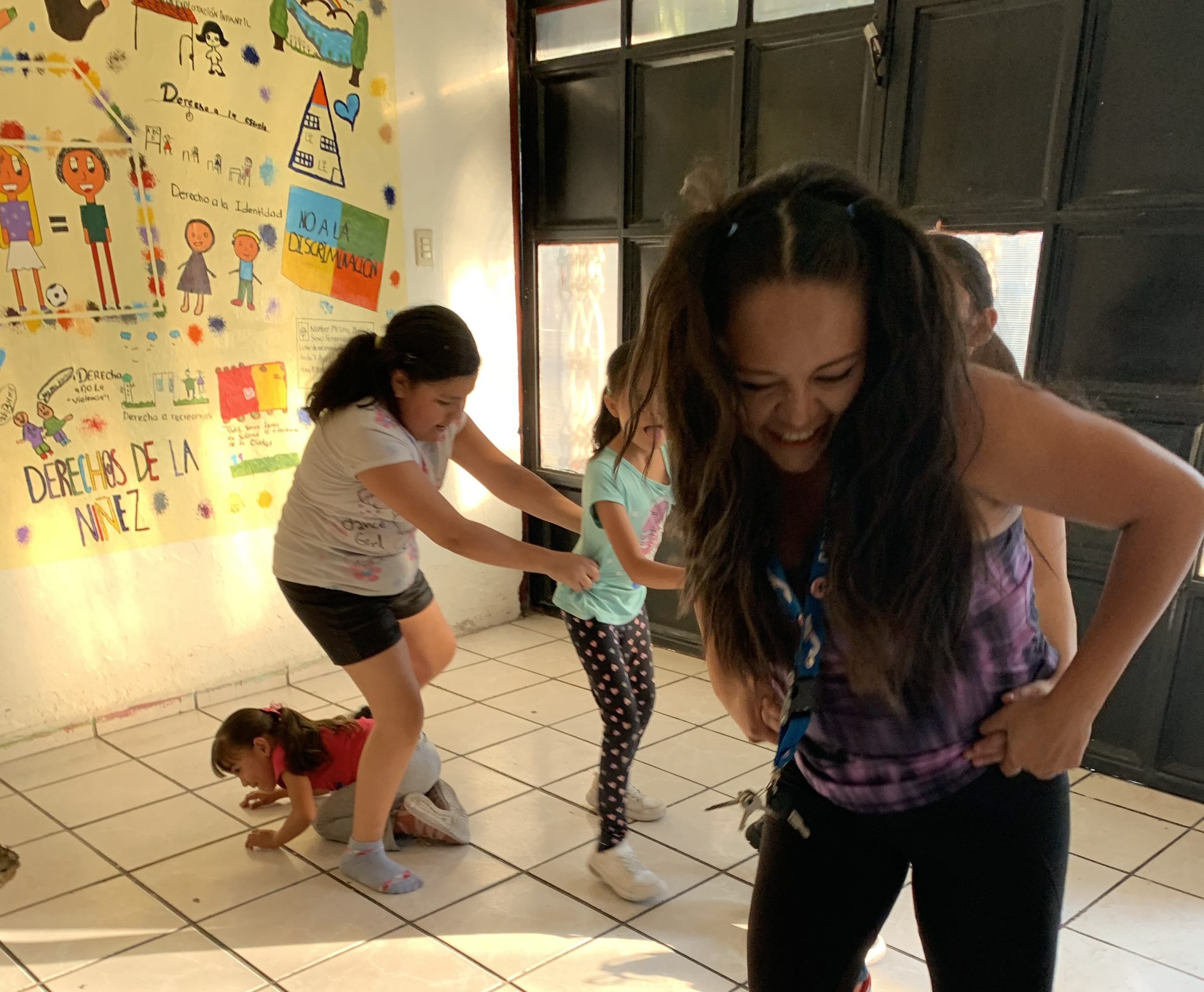Part 1: Embodying the Fullness of God’s Kingdom
In the Gospel narratives, Jesus offers His followers two fundamental mandates that have resonated through generations of Christians: the Great Commission and the Great Commandment. While the Great Commission calls us to go, make disciples, and participate in God’s redemptive mission (Matthew 28:18-20), the Great Commandment centers on love—love for God, for our neighbor, and for ourselves (Matthew 22:37-40). These two mandates are intrinsically connected; each gives meaning to the other. Together, they call us to an integrated life of faith that seeks to transform hearts, communities, and systems. Embracing both is truly embodying and advancing the Good News of God’s Kingdom.
The Foundation of Love in Mission
When Jesus taught the Great Commandment, He was asked which law was the “most important”. His response was simple yet profound: “Love the Lord your God with all your heart, with all your soul, and with all your mind… and love your neighbor as yourself” (Matthew 22:37-39). In these words, Jesus emphasizes the heart of discipleship—a love that permeates every area of our lives, shaping not only what we believe but also how we engage with the world.
Mission without love can easily become an exercise in effort or control, but a mission grounded in love is centered on God’s deep and enduring love for humanity. This love shapes our understanding of what it means to share the gospel, reminding us that it is not a task to be completed but a relationship to be cultivated. The Great Commandment calls us to adopt a posture of compassion, empathy, and humility—essential qualities for living out the Great Commission with integrity.
Mission without love easily becomes an exercise in effort or control, but a mission rooted in love centers on God’s deep and enduring love for humanity.
When love is at the center of mission, it keeps us focused on God’s purposes. As Jesus sends His disciples to make disciples, He calls them to a ministry defined by love for God and for others. This kind of love sees each person as bearing the image of God and recognizes their unique stories and contexts. It seeks to heal and uplift rather than simply “win” souls. In every act of discipleship, the Great Commandment reminds us that love—for God and for others—is at the very heart of God’s mission.
The Great Co-Mission: Participating in God’s Kingdom Project
Jesus’ Great Commission calls His followers to “make disciples of all nations”, teaching them to obey His commandments and baptizing them in the name of the Father, the Son, and the Holy Spirit. This Commission, directed to a community rather than an individual, invites us into God’s mission as partners rather than solitary actors. The term “co-mission” highlights that we do not go alone; we go in partnership with the Spirit of God, empowered to live and proclaim the Good News.
The Great Commission is not about striving to accomplish something on our own; it is about participating in what God is already doing. Jesus’ words remind us to “wait to be empowered”, emphasizing the importance of going with the authority of God’s Spirit rather than relying on our own strength. Our mission is not to impose our agendas but to join in God’s work, allowing the Spirit to lead us. This call to wait and receive power is an invitation to a mission marked by humility and dependence on God.

Integrating Love and Mission: Beyond Ourselves
A fundamental aspect of both the Great Commission and the Great Commandment is the call to move beyond ourselves. In the Great Commission, Jesus encourages us to step out of our comfort zones—socially, culturally, and spiritually. He calls us to cross barriers and build relationships with people who may not share our backgrounds, experiences, or perspectives. This is an invitation to enrich our lives through diversity, learning to respect and value the life experiences of others.
In the context of the Great Commandment, this call to go beyond ourselves takes the form of loving our neighbor. We are called to love those who are different from us, to empathize with their struggles, and to rejoice in their joys. This love compels us to engage with the world around us, not merely as a project but as a vibrant and ongoing relationship. It pushes us beyond the limits of what is familiar or comfortable, teaching us to love our neighbors not as “others” but as friends and family in Christ.
Sharing the Good News: Proclamation Rooted in Love and Justice
Sharing the gospel is at the heart of the Great Commission, but proclamation without love can be empty or even harmful. By embodying both the Great Commandment and the Great Commission, we approach evangelism as a message of love, hope, and liberation rather than fear or coercion. We are invited to proclaim the resurrection of Jesus not just as a historical event but as the breaking in of God’s Kingdom—a Kingdom where love, justice, and mercy prevail.
To proclaim the gospel is to invite others to encounter a God who is healing and restoring all things.
This vision of the Kingdom addresses not only individual needs but also the world at large, calling us to challenge injustices, care for the marginalized, and honor the dignity of every person. The resurrection of Jesus signals hope for all who suffer under the brutality and greed of human systems. It declares that love triumphs over hate and that the path of humility and service surpasses power and pride. By embodying this love in our proclamation, we invite others to encounter a God who is actively working to heal and restore all things.
Making Disciples: Creating Communities of Transformation
The call of the Great Commission to make disciples is more than a simple invitation to conversion. It is an invitation to cultivate communities that reflect the values of God’s Kingdom. Discipleship involves teaching others not only to believe but to live out the teachings of Jesus, creating a ripple effect of love and justice. By helping others grow in love for God, their neighbors, and themselves, we contribute to a movement that impacts not only individual lives but entire communities and future generations.
Communities formed in this way become spaces of learning where we practice forgiveness, mercy, justice, and grace. They are places where people are encouraged to “put off the old self” and embrace their true identity in Christ. These communities become living embodiments of God’s Kingdom, offering a glimpse of what it means to live under His reign here and now. They model an alternative way of life, marked by generosity, compassion, and solidarity.

Embracing the Challenge: Trusting in God’s Power and Presence
Both the Great Commission and the Great Commandment remind us that this mission is beyond our human capabilities. Jesus knew the task was immense and promised divine help, empowering us with the Spirit to accomplish what we could never do on our own. The call to make disciples of all nations, care for the vulnerable, and love our neighbors as ourselves is only possible through God’s strength and guidance.
Jesus assures us of His continual presence, promising to be with us always. This promise of His companionship is a source of comfort and encouragement, reminding us that we do not walk this journey alone. We are not left to strive in our own strength but are invited into a partnership where God’s power works through us. When we let go of self-sufficiency and embrace our dependence on God, we discover that His “yoke is easy” and His “burden is light”.
The Vision of the Kingdom: Love Embodied in Mission
By embodying both the Great Commission and the Great Commandment, we become active participants in God’s Kingdom vision. We learn to love with God’s love, proclaim the gospel of hope and justice, and create communities that reflect the values of His Kingdom. These two intertwined mandates provide us with a holistic understanding of what it means to follow Jesus—not just as individuals, but as a collective missional body.
Our mission is to bring the Good News of the Kingdom to a world desperately in need of love, justice, and transformation. As we live out the call to love God, our neighbor, and ourselves, we become vessels of God’s grace and truth, bearing witness to a Kingdom that is both present and yet to come. In doing so, we fully live, embody, and advance the Good News of God’s Kingdom, offering a message as vast and profound as God’s own love.

Conclusion: The Outcome of Integrating the Two Great Commands
The integration of the Great Commandment and the Great Commission reveals that the heart of the Christian mission is not merely a duty to fulfill but an invitation to participate in God’s life and purpose in the world. Love for God and neighbor compels us to proclaim and embody the gospel holistically, transforming communities and building relationships rooted in justice and compassion. However, this mission is not an isolated task but part of a greater reality—the coming of God’s Kingdom.
Jesus calls us not only to make disciples and love our neighbor but to live with a clear Kingdom orientation. His call to “seek first the Kingdom of God and His righteousness” (Matthew 6:33) challenges us to prioritize differently, aligning our lives with God’s will and purposes rather than our own concerns or anxieties. Thus, commitment to the Great Commandment and the Great Commission cannot be separated from the active pursuit of the Kingdom. The Christian mission is a participation in the radical transformation God is bringing to the world.
With this foundation, we can deepen our understanding of what it truly means to seek first the Kingdom of God and how this calling redefines our relationship with mission, security, and the priorities of the Christian life.
Part 2: What It Means to Seek First the Kingdom of God
In Matthew 6:33, Jesus urges His followers to “seek first the Kingdom of God and His righteousness, and all these things will be given to you as well.” This statement is not merely a call to live righteously; it is a radical invitation to reorient our priorities. By instructing them to seek the Kingdom “first”, Jesus redirects them from a life centered on self-sufficiency, wealth, or power and toward a life of trust in God’s provision and commitment to His purposes.
The Meaning of Seeking the Kingdom
To grasp the depth of Matthew 6:33, it is helpful to consider what “Kingdom” meant in Jesus’ time. For first-century Jews, a kingdom was a tangible and real society with a king, citizens, laws, and a distinct way of life. Jesus presents the Kingdom of God as a divine reality breaking into our world, with God as the sovereign King and His teachings as the guiding law. This Kingdom challenges the values of earthly kingdoms, where power, wealth, and personal security often dominate. In contrast, in God’s Kingdom, love, generosity, and justice reign supreme.
The Kingdom Versus Earthly Security
In Matthew 6, Jesus also contrasts two ways of living: one focused on anxious self-protection and another rooted in faith in God’s care. In a world marked by scarcity, violence, and injustice, we naturally tend to focus on securing our own needs and those of our loved ones. But Jesus warns against prioritizing material concerns, emphasizing that such anxiety can pull us away from living as citizens of God’s Kingdom. When He says, ”all these things will be given to you as well”, He does not suggest that seeking the Kingdom guarantees immediate food, shelter, or security. Rather, He offers a long-term vision of life under God’s reign, one that will ultimately restore creation to a state of peace and abundance. Jesus Himself lived with faith in this promise, despite experiencing poverty, betrayal, and suffering.
To seek first the Kingdom of God is to reorient life from self-sufficiency toward the trust and generosity of the Kingdom.
Living as Citizens of the Kingdom
The call to “seek first the Kingdom” is an invitation to live today as if God’s Kingdom were already fully present, even though it remains a “now but not yet” reality. Jesus exemplifies this way of life by resisting violence, avoiding self-centered survival strategies, and trusting completely in God’s care. For Jesus’ followers, seeking the Kingdom means choosing love over the instinct for self-preservation, generosity over self-sufficiency, and forgiveness over revenge. The early Christian community described in Acts 2 provides a compelling example of this Kingdom-centered life. They supported one another, shared resources, and lived generously, even in the face of a hostile world. By embodying God’s Kingdom, they experienced a freedom from the anxieties and pressures of a self-focused life.
The Kingdom as Hope and Promise
Seeking the Kingdom of God is also an act of hope. Jesus’ teachings invite us to trust that one day, God’s Kingdom will be fully realized—a world where love, peace, and justice completely reign. Until then, we live in the tension of a world where danger, need, and suffering are present, yet we are called to respond as if God’s future Kingdom is already here.
Jesus demonstrates that life in the Kingdom is not only about a future paradise; it is a way of living that begins now, transforming both individual hearts and entire communities. Seeking “first the Kingdom” means choosing a way of life aligned with God’s ultimate purpose for creation, anticipating the moment when His Kingdom will be fully revealed, bringing peace, love, and wholeness to all creation.
Conclusion: Living the Mission of the Kingdom with Love and Commitment
In conclusion, integrating the Great Commandment and the Great Commission leads to a deeper understanding of what it means to follow Jesus. It is not a dichotomy between evangelism and service, between proclaiming the gospel and living it out in justice and love. Rather, it is a dynamic convergence in which the proclamation and pursuit of the Kingdom and the embodiment of its values are inseparable.
To seek the Kingdom is to proclaim the gospel faithfully and to live with generosity, unconditional love, and a commitment to justice.
When Jesus calls us to “seek first the Kingdom of God and His righteousness” (Matthew 6:33), He challenges us to reorder our priorities and trust that by placing His Kingdom at the center, everything else will find its rightful place. Seeking the Kingdom involves faithfully proclaiming the gospel, but also living generously, loving unconditionally, challenging injustices, and building communities of reconciliation. It is a radical commitment that pulls us out of comfort and compels us to embody God’s love in every relationship, decision, and action.
This calling also reminds us that the Christian mission is not merely a task to accomplish but an active participation in the renewal of all things. We do not cling to earthly security or rely on our own strategies, but we learn to depend on God’s provision, living as Kingdom citizens even in the midst of uncertainty. Like Jesus, we are invited to trust, love, and act with a vision that transcends the immediate and points to the fullness of His reign.
Therefore, embracing the Great Commission and the Great Commandment is not just a responsibility—it is a privilege: the privilege of participating in God’s redemptive work while becoming living witnesses of His love and justice. It is living with the certainty that God’s Kingdom is already breaking into our reality and that, by seeking it first, we discover the true essence of our faith and purpose.
Image Directory
- “Activación Física”, Comunidad FAST.
- “Brazil Child Care, children playing with blocks”, Katrina Rowe, Wikimedia CC 2.0
- “Clínica Móvil en Venezuela”, Archivo Camino Alliance.
- “El huerto urbano de Adelfas, un espacio de convivencia entre vecinos y vecinas 03.”, Ayuntamiento de Madrid, Wikimedia CC 4.0

